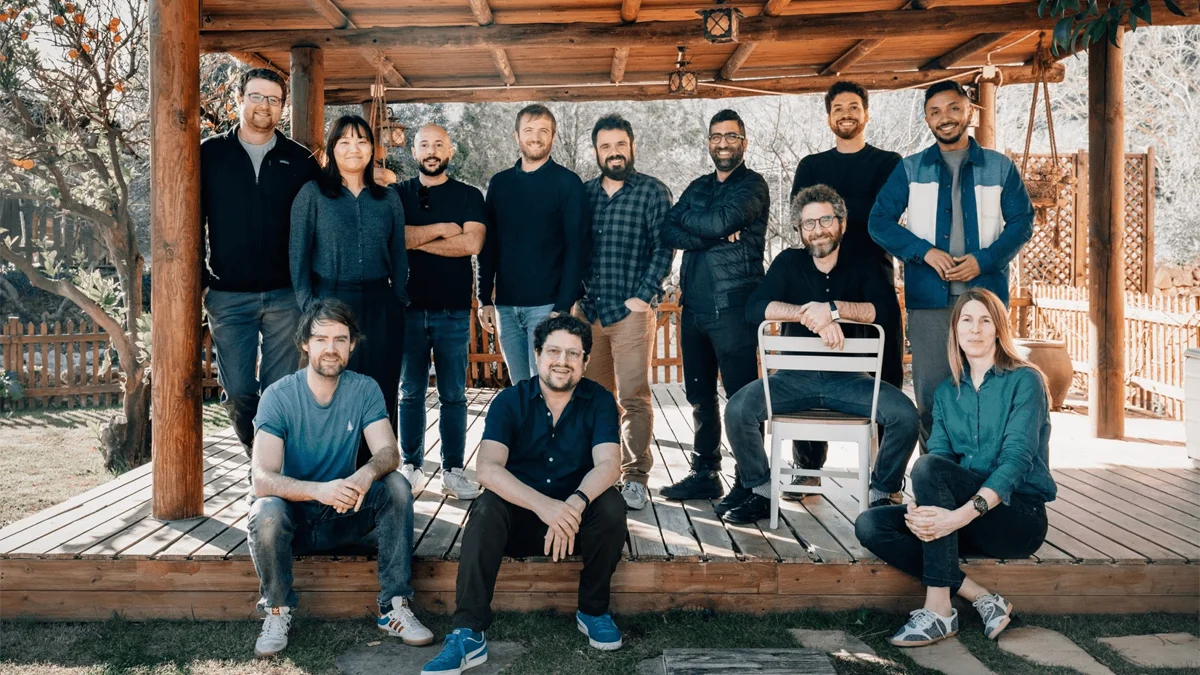Necessary Always Active
Necessary cookies are required to enable the basic features of this site, such as providing secure log-in or adjusting your consent preferences. These cookies do not store any personally identifiable data.
|
||||||
|
||||||
|
||||||
|

Lunar Ventures has launched its second fund to support early-stage DeepTech startups in Europe and the United States, as reported by Tech Funding News. The Venture firm in Berlin raised €50 million for its new fund, aiming to finance AI-related technologies that go further than the ones in use today.
The company’s fund will focus on businesses that have not attracted public interest yet. Lunar Ventures aims to help new companies by creating innovative technologies for artificial intelligence, significant research, and difficult computing tasks.
Lunar Ventures was established in Berlin by Dr. Elad Verbin, Mick Halsband, and Luis Shemtov and the team’s size has increased to eleven experts. These include members with PhDs in computer science and physics, experienced CTOs, and startup operators. This diverse background allows the team to truly understand the complex needs of DeepTech companies.
Their initial fund raised €40 million in 2021, which was twice the amount they had planned for. Around 25 startups that received funds from this organization later raised money from prominent investors. Some of these startups include Deepset, Zama, Molecule, Hathora, Electric, and Unify. Afterward, Google Ventures, Spark Capital, and Founders Fund provided these companies with financial support.
Lunar Ventures’ second fund will follow the same model as the first one. The company plans to invest between €750,000 and €1 million in around 25 to 30 startups. Around 20% of the fund will go to startups based in the United States, particularly those outside of major hubs like Silicon Valley.
Mick Halsband, one of the firm’s founders, explained the vision behind the fund as “We set out to build a different kind of firm: a complementary team of engineers, operators, and PhDs dedicated to being the earliest and most technical partner to DeepTech founders. At Lunar, we back technical builders from day zero, before traction or hype, with the in-house expertise to build conviction before consensus.”
He added that although funding for DeepTech has grown significantly in the past decade, founders still look for long-term partners who truly understand the science behind the technology.
Although Lunar Fund II is just getting started, the team has begun to invest in companies. They decided to allocate their first funds to Bruin which operates in Berlin. Bruin is creating a platform aimed at helping firms manage their information more efficiently. Using this system, you can manage your data quality, monitor it, and transform data all in one place. The money that would go toward fixing data is now used for growing the business.
Another early investment is in Lodestar Space, a startup in London. They build smart robotic systems that can protect satellites and other space infrastructure from threats while in orbit. The company is developing technology that allows these robots to work independently. It has already received support from the UK and European Space Agencies.
Neil Buchanan, CEO and Co-Founder of Lodestar Space, spoke about why his company chose Lunar, and said “Lunar had the technical depth to understand what we were building and the conviction to back us before anyone. They brought clarity, conviction, and hands-on support when it mattered most.”
Apart from Bruin and Lodestar, the fund has invested in several other projects in areas such as processing information from various data sources, AI for discovering drugs, and AI systems for use in regulated industries.
Lunar Ventures Fund II is being launched while the DeepTech sector in Europe is booming. By 2023, European tech investments in DeepTech accounted for 44%, much higher than before. For this reason, investors have now put more resources into DeepTech than into Fintech and SaaS.
These types of startups typically require more time and funds to flourish. In general, they use 35% extra time and need 48% more funding to reach €4.6 million in revenue, unlike traditional startups. For this reason, having access to companies like Lunar Ventures is vital.
Europe is also investing heavily in this space, with the European Innovation Council set to invest €1.4 billion in DeepTech startups by 2025. Since 2021, the EIC fund has aided over 100 businesses and assisted in launching more than 150 startups worth €100 million each.
The company plays a crucial role by investing in startups developing advanced technologies. While many investors join in later, Lunar starts at the beginning, supplying capital as well as valuable knowledge and a like-minded attitude.